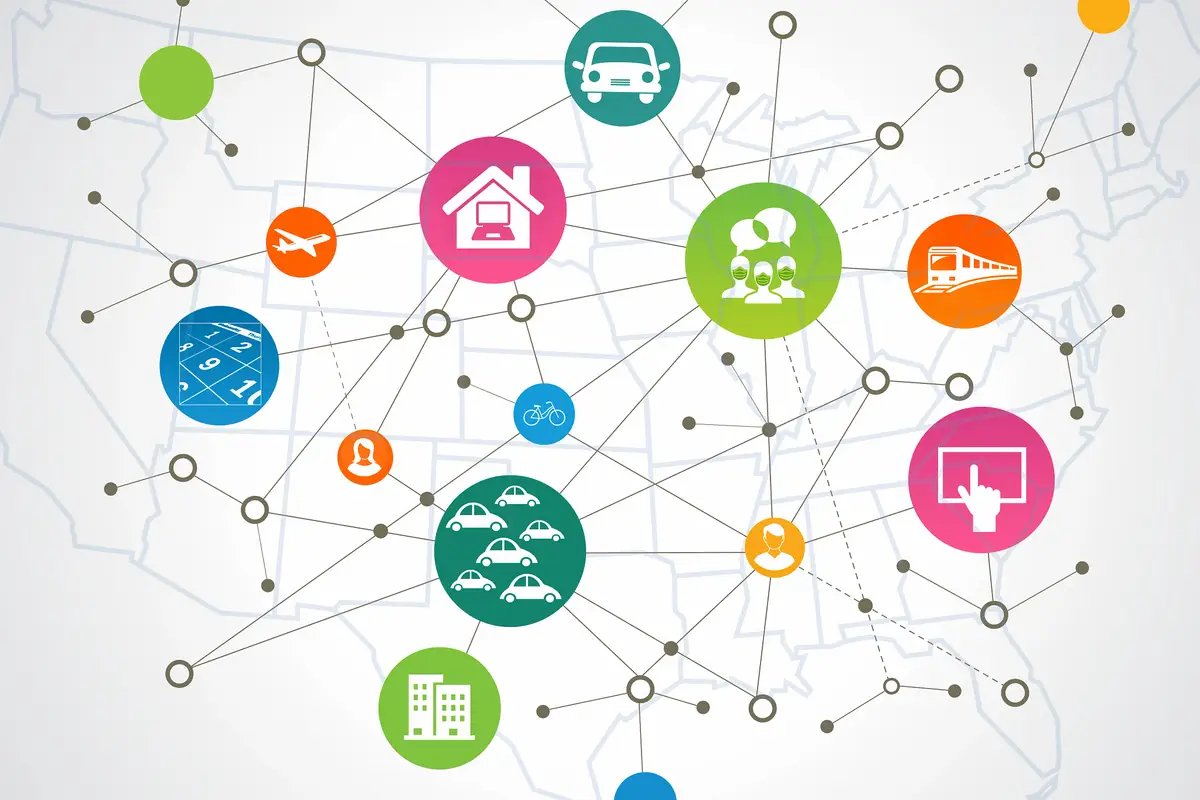Coronavirus and Commuting: 6 Things You’ve Stopped Doing on the Road Back to Work


The nation is divided 50-50 right now — and this time it ain’t over politics. As of Aug. 20, roughly half of U.S. states have either reopened or are in the process of reopening following mandatory shutdowns in response to the COVID-19 pandemic, while the other half are either rolling back or “pausing” their reopening amid spiking infection rates. But unlike the polarizing politics of today, a majority of Americans seem to agree on at least one thing: We’re anxious about going back to work and, as a result, we’re changing how we get there.
Related: COVID-19 Summer Travel Restrictions Got Americans Trippin’ — Road Trippin’, That Is
- ${price_badge()}
- ${ami_badge()}
- ${battery_badge()}${ev_report_link()}
- ${hot_car_badge()}
- ${award_badge()}
- ${cpo_badge()}
${price_badge_description}
${ami_badge_description}
The EV Battery Rating is based on this vehicle's current expected range relative to the vehicles expected range when new. ${battery_badge_text}
Certified cars are manufacturer warrantied and typically go through a rigorous multi-point inspection.
This car is likely to sell soon based on the price, features, and condition.
${award_blurb}
${award_two_blurb}
Shop the 2020 Hyundai Palisade near you


As much of the American office workforce continues to work remotely, there is a major shift in commuting behavior, which is likely to have a lasting impact long after we return to the office. Workers are saving up to an hour or more a day by not commuting, and finding significant value in this newfound gift of time. And when they do finally return to the office, it won’t be via mass transit. Personal vehicles will dominate the work commute as distrust in public transport and ride-sharing continues.
Cars.com conducted a survey on commuting concerns from Aug. 13-14, garnering 3,062 responses. The study reveals changing attitudes toward the daily commute as Americans return, or plan to return, to the physical workplace from which millions have been absent for some six months since the start of pandemic-precipitated lockdowns — and what they’re just not willing to put up with.
Here are six things commuters say they won’t be doing as they head back to work, maybe indefinitely:
1. Commuting Constantly
Convincing people who’ve been doing their jobs from home for most of the year to go back to sitting in gridlock every single weekday may prove to be like putting toothpaste back in the tube. Some 30% of survey respondents who are currently working at an office at least part time are commuting less often, while more than a third of future commuters plan to commute less, even after returning to the workplace.
2. Waiting at the Bus Stop or Train Station
The benefits of public transportation are well-documented, but due to lingering uncertainty surrounding the transmission of COVID-19, individual risk factors and sanitization protocols, commuters are increasingly not onboard with taking the bus or train to work. Sixty percent of subway or commuter-rail riders have stopped taking the train or are riding less frequently, while 65% of bus riders say the same. Moreover, nearly half said it would be at least three months before mass-transit use returns to pre-pandemic ridership, while 7% say they’ll never resume their previous levels of use.
3. Relying on Ride-Sharing
Even dedicated public-transit advocates will grudgingly admit that the ease and convenience of having your own private ride pick you up and drop you off at preselected locations sans the hassle of a live financial transaction — and often at a price competitive with the would-be train fare — has spoiled urban dwellers. But given the increased likelihood of virus transmission in an enclosed space (like, say, that Nissan Sentra or Toyota Corolla that comes with your UberX ride request), the allure of ride-share has faded. Cars.com’s survey showed that 59% of people are tapping on those Uber and Lyft apps less than they used to.
4. Trusting Your Fellow Man
Whether silently judging the maskless people you pass on the street or shooting eye darts at some rando who breaches your 6-foot social-distance bubble, the pandemic hasn’t done any favors for our faith in humanity. It’s not just anecdotal: 43% of Americans don’t trust their fellow riders and passengers to abide by health and safety protocols, while just 57% report even moderate trust. It’s worth noting, however, that people seem to put more faith in institutions than individuals: Nationally, 74% feel at least moderately that transportation companies will abide by local and national safety protocols to slow and prevent the spread of the coronavirus, according to the Cars.com study.
5. Wondering What They’d Do With Extra Time in Their Day
With 40% of workers reportedly saving up to an hour a day on their commute, and more than a quarter saving even more … a lot of really terrible screenplays are finally getting written (trust me). OK, we don’t have any hard numbers on that, but we do know that 43% of people who’ve had their commutes cut are catching up on TV shows and movies, 38% are exercising more, a full third are spending more time with family and friends (appropriately social distanced, we hope), and nearly a fifth are using the extra time to work more. (Booo to the people in that last group.)
6. Putting Off That Car Purchase
Twenty-one percent of those surveyed have bought a car in the past six months — and 57% of those buyers say they did so as a direct result of the pandemic. In its recommendations for returning to workplaces during the COVID-19 pandemic, the Centers for Disease Control and Prevention said those who commute should “use forms of transportation that minimize close contact with others” such as biking, walking and driving. And, not for nothin’, in a previous Cars.com survey, 67% said the coronavirus has increased their reliance on or their need for a personal vehicle.
More From Cars.com:
- If You Must Carpool for School During COVID-19, Here’s How to Do It
- Cars.com Survey: COVID-19 Inspires Car Ownership
- 10 Biggest Coronavirus Advice Stories for Car Shoppers and Owners
- Why Now Is the Time to Buy a Sedan, Not an SUV
- More Coronavirus and Cars Coverage
Car-Buying Advice
Are you among the many now in need of a new ride for your self-quarantined commute as you return to the office? We can help (this is Cars.com, after all). Check out our handy, step-by-step buying guide that walks you through every step of the car-shopping and purchase process, including how much you should spend, what you should buy, how you set about finding it, whom you should buy from, visiting the dealership (in person or virtually), what you should do with your current car and completing the sale. Wanna find the latest and greatest deals out there on new cars? We’ve got that, too. Interested in our 2 cents on what you should consider buying? Sharing is caring. Need to know how to properly sanitize your car against COVID-19? Here ya go.
We’ll see you at the watercooler … if, ya know, there are still watercoolers after all this.
Cars.com’s Editorial department is your source for automotive news and reviews. In line with Cars.com’s long-standing ethics policy, editors and reviewers don’t accept gifts or free trips from automakers. The Editorial department is independent of Cars.com’s advertising, sales and sponsored content departments.

Former Assistant Managing Editor-News Matt Schmitz is a veteran Chicago journalist indulging his curiosity for all things auto while helping to inform car shoppers.
Featured stories




